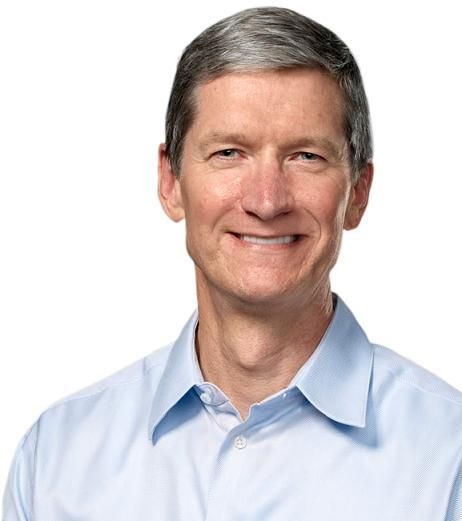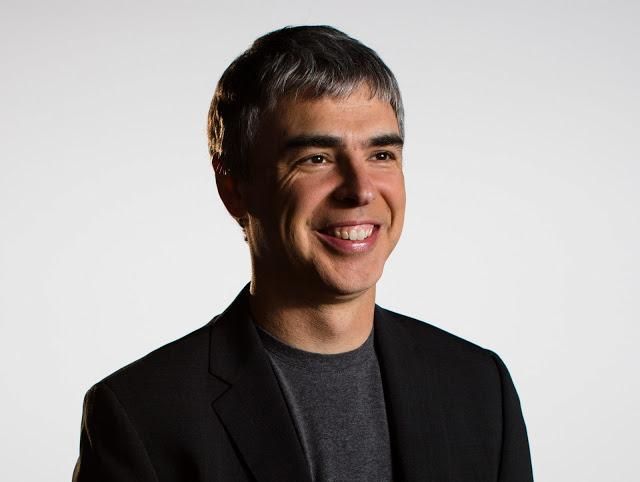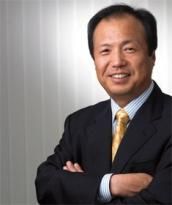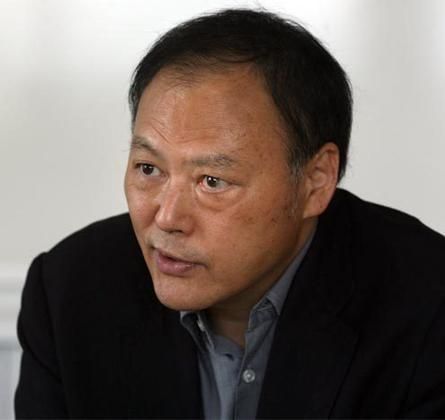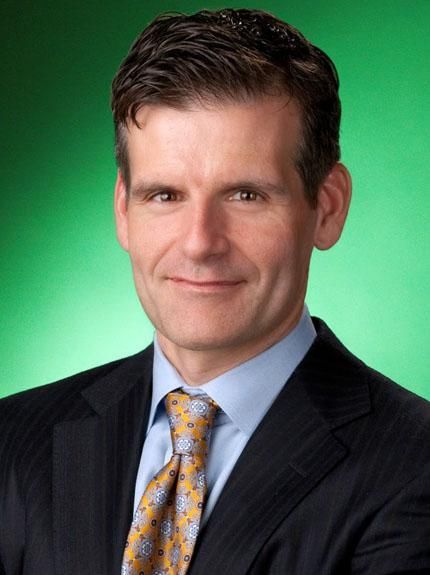Who’s the person responsible when a smartphone company really nails a handset launch? Who do we blame when a product bombs? While there are any number of engineers, designers, marketing folk, and executives involved with the release of a new device or service, when it comes to giving one of these corporate entities a face, more often than not we look to the company’s CEO.
Sure, up on this same level we can find all matter of presidents, board members, and chairpeople (persons?) overseeing a company’s business, but in the end it’s the Chief Executive Officer making the managerial decisions that contribute to a product’s success or failure – taking the stage for big announcements – and publicly discussing business strategy with the press.
We all have our favorite platforms, manufacturers, and even individual handsets, but what about CEOs? Who’s doing the best job steering their companies in the right direction? Who do you get excited to see when they come out for a product announcement? Let’s take a look at the CEOs behind some of the biggest players in mobile electronics and find out whom you like the best.
The Platforms
With all the Jollas, Mozillas, and Ubuntus of the world, this could go on for a while if we let it, so let’s stick to the big four.
Apple
CEO: Tim Cook
Cook has been working his way up Apple’s managerial ladder for over a decade. As Steve Jobs’s health issues demanded, Cook stepped-up to fill in for Jobs, going all the way back to an early short stint as temporary CEO in 2004.
Eventually, that paved the way for a full-time CEO gig, a role Cook took on in the summer of 2011. Since then, we’ve seen Cook in an increasingly public role, and while he may not have the raw charisma of Jobs (who really does, though?) his passion for Apple products and commitment to keep pushing for improvements has earned him the respect of the iOS community.
He’s also one of the best-compensated CEOs around, which doesn’t hurt.
CEO: Larry Page
Google has a number of high-profile executives, but it’s Page who has taken on CEO duties. Like most of these companies behind smartphone platforms, Google’s interests are far broader than just mobile electronics, so while it may be tempting to focus on Android head Sundar Pinchai, instead, Page is still the driving force behind it all.
As a Google co-founder along with Sergey Brin, Page has something some of these other CEOs lack: nerd cred. He’s also got the benefit of his youth, ambition, considerable resources, and straight-up talent, and when we see him do things like fielding questions at Google I/O despite challenges stemming from paralyzed vocal cords, it’s clear how much he cares about the Android community.
Microsoft
CEO: Steve Ballmer
Ballmer’s a very different type of CEO than Larry Page: he’s a manager through-and-through. He’s been with Microsoft for more than thirty years now, and CEO since 2000. For a while, Bill Gates was still the public face of Microsoft, but since Gates’s retirement we’ve seen Ballmer take on a more prominent role.
Like Steve Jobs in a respect, Ballmer gets seriously excited about his company’s products, but his bombastic tendencies can make him sort of a love-him-or-hate-him persona.
BlackBerry
CEO: Thorsten Heins
Heins did not become BlackBerry’s (then RIM’s) CEO at the most convenient time. A year ago January, BlackBerry’s team of co-CEOs handed the torch to Heins, entrusted to bring the company back from one heck of a troubling decline. That’s a huge task to undertake, and even now that BlackBerry 10 has arrived, we’re still not sure what its impact will ultimately be.
Being in this position, Heins has his own share of detractors, anxious to see BlackBerry reclaim some of its glory days. Nevertheless, he seems to be keeping positive about his company’s outlook, and news of additional BB10 phones beyond the Z10 and Q10 gives us hope that BlackBerry – and Heins by extension – is far from ready to throw in the towel.
The Major OEMs
We’ve talked about the men (which is only reminding us of the serious lack of gender diversity in smartphone leadership roles) behind the big platforms, so now let’s look at the leaders of the companies that actually make the phones running that code. Apple and BlackBerry are already taken care of, but who are the CEOs to keep an eye on in the Windows Phone/Android spheres?
Samsung
CEO: J.K. Shin
Samsung’s a funny case – like BlackBerry was before Heins’s reign: it has multiple CEOs. And we’re not even talking about the behemoth that’s Samsung the conglomerate, but only Samsung Electronics – still three CEOs. Of those co-CEOs, J.K. Shin is easily the most visible, and probably the one you think of when we’re talking about leadership when it comes to smartphones.
Even before he was a CEO (only taking the role earlier this year), Shin was a key player in Samsung’s smartphone interests, and we’ve heard him talking about its handsets for years now. Like HTC’s Peter Chou (whom we’ll get to in just a second), Shin is one of the executives from an Asian smartphone company who’s arguably most visible to Western audiences.
HTC
CEO: Peter Chou
More than just the CEO, Peter Chou is one of the co-founders of HTC. Despite rising to become one of the big players in the smartphone game, HTC still feels like a bit of an underdog (especially with its sales slumping over the course of the past year), but it’s always been fun to root for it, due in no small part to Chou and his seemingly endless enthusiasm for his baby.
We’ve heard some statements from Chou that give us hope that he knows what HTC needs to do in order to improve its fortunes a little, but it’s going to take more than just faith in order to compete with the likes of Samsung.
How committed is Peter Chou to HTC? He’s offered to quit if the One fails to be a success.
LG
CEO: Bon-joon Koo
Like Samsung, we’re dealing with a subsidiary of a larger enterprise – in this case, we’re interested in LG Electronics. Despite LG’s prominent role in the Android ecosystem, Koo isn’t a name we cross paths with often. That puts him at a disadvantage in our little CEO race here.
Koo started managing LG Electronics after being appointed as CEO back in 2010. In the years before that, he played a major leadership role in the company’s LCD division.
Motorola
CEO: Dennis Woodside
At first glance, it hardly seems fair to judge Dennis Woodside on his short tenure as Motorola CEO, as we’ve heard much about how the company is still working through its old Sanjay-Jha-era product pipeline. Still, Woodside’s been in the position since Google took over last year, so perhaps we should be putting more pressure on him for why we haven’t yet seen the grand fruits of Google’s acquisition.
This year could be a big one for Woodside with products like the highly-anticipated Moto X waiting for us. If that ends up being a dud, you had better believe that we’ll be a lot less kind to Woodside in any CEO assessments in the future.
Nokia
CEO: Stephen Elop
Elop jumped ship from Microsoft for Nokia in 2010, so perhaps it’s only fitting that we’ve since see him lead his company away from Symbian and set its sights firmly on a future intimately connected with Microsoft’s. That decision hasn’t always been the most popular, even with the company’s own stockholders, but it looks like Elop is in it for the long haul.
While Nokia’s released some fantastic smartphones under Elop’s watch, and they dominate Windows Phone sales, they’re still not competing with iOS or Android devices in the way we might like to see. Is that Elop’s failure, or Microsoft and Steve Ballmer’s?
Sony
CEO: Kunimasa Suzuki
Like some of these other guys, Suzuki’s a relative newcomer, having scored his CEO gig just about a year ago. Since then, though, we’ve seen Sony take some significant steps towards increasing its smartphone profile, due in no small part to this year’s Xperia Z. Combined with tablets like the Xperia Tablet Z, Suzuki’s leadership has brought us a Sony capable of delivering super-thin, durable hardware that’s becoming more and more worth paying attention to.
_____
If we started getting into all the Huaweis and ASUSes out there, we could keep this up all day, but we think we hit most of the important ones here. So, out of all these people – the men in charge, not the companies they oversee – who do you think’s the best? Who would you want running your smartphone company?


